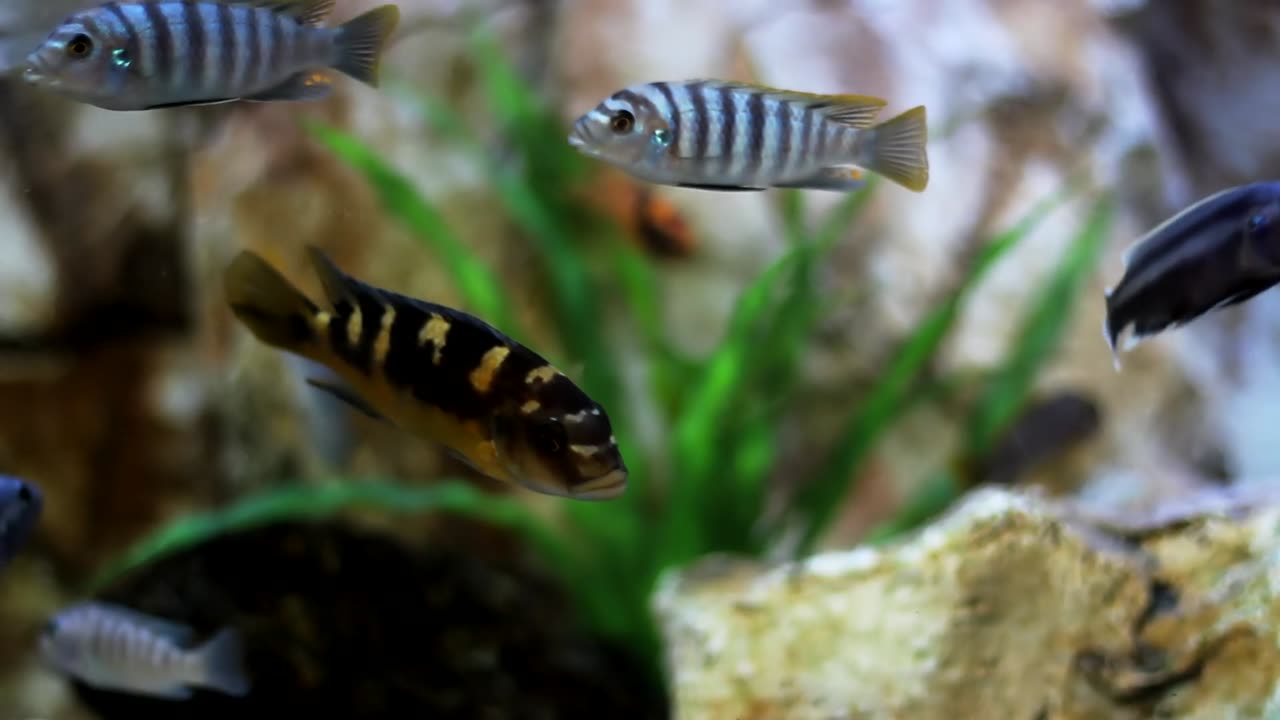Premium Only Content

greate fish
Sustainable Fishing Practices: There's a growing global awareness of the importance of sustainable fishing practices to preserve fish populations and marine ecosystems. Consumers are increasingly seeking out sustainably sourced fish and seafood, leading to certifications like Marine Stewardship Council (MSC) becoming more prevalent.
Aquaculture Expansion: As wild fish stocks face depletion due to overfishing and environmental changes, aquaculture continues to expand to meet the growing demand for seafood. This trend includes not only traditional fish farming but also innovative approaches such as land-based recirculating systems and offshore aquaculture.
Rise of Alternative Seafood: Concerns over sustainability, animal welfare, and environmental impact are driving the development and popularity of alternative seafood products. These include plant-based seafood substitutes, cell-cultured (lab-grown) seafood, and even seafood made from algae and other non-animal sources.
Traceability and Transparency: Consumers are increasingly interested in knowing where their seafood comes from and how it was caught or farmed. This has led to greater emphasis on traceability and transparency throughout the seafood supply chain, with technology playing a crucial role in enabling better tracking and documentation.
Health and Nutrition: Fish is recognized as a nutritious source of protein, omega-3 fatty acids, vitamins, and minerals. As health-conscious consumers seek out foods that contribute to overall well-being, fish consumption remains popular, particularly for its perceived health benefits.
Innovation in Packaging and Processing: Innovations in packaging and processing techniques aim to improve the freshness, flavor, and shelf life of fish products while minimizing waste. This includes advancements in vacuum packaging, modified atmosphere packaging, and sustainable packaging materials.
Cultural and Culinary Exploration: As global connectivity increases, consumers are becoming more adventurous in their culinary preferences, leading to a growing interest in exploring diverse fish species and seafood dishes from different cultures and regions around the world.
Climate Change Impacts: Climate change is affecting fish populations and marine ecosystems, leading to shifts in distribution, altered breeding patterns, and changes in fishery management practices. Adaptation strategies and sustainable management approaches are essential to mitigate these impacts and ensure the long-term viability of fisheries.
These trends collectively reflect the evolving dynamics of the fish and seafood industry, driven by factors such as environmental concerns, technological advancements, changing consumer preferences, and the need for sustainable resource management.
-
 LIVE
LIVE
vivafrei
20 hours agoExposing the Trans MADNESS in Maine School Boards! Live with Activist and Truth Teller "Corn Pop"!
12,329 watching -
 LIVE
LIVE
The Quartering
2 hours agoWhat The Heck Is Even Happening?
6,251 watching -
 LIVE
LIVE
iCkEdMeL
53 minutes agoICE SHOOTS Popular TikToker ‘Richard’ During Raid in South L.A.?! 😳 What Really Happened LIVE
489 watching -
 1:05:27
1:05:27
DeVory Darkins
3 hours ago $27.77 earnedTrump scores HISTORIC IMMIGRATION WIN as Democrats STUNNED by ballroom renovations
107K47 -
 43:40
43:40
The Rubin Report
2 hours agoDark Future Predictions & Exposing the Truth About Australia’s Past | Tony Abbott
8.83K8 -
 1:57:45
1:57:45
The Charlie Kirk Show
3 hours agoThis is What Democracy Looks Like + Oxford Union Election Fraud? | Dr. Orr, Ogoloma, Harmon | 10.21
60.4K23 -
 26:07
26:07
Lady Decade
10 hours agoGaming Feminists Just Discovered Islam - & It’s Not Going Well
26.6K6 -
 3:52
3:52
Michael Heaver
2 hours agoErupting UK Voters Send FEROCIOUS Message
261 -
 1:05:52
1:05:52
Timcast
3 hours agoJudge Rules DHS Agents CAN BE ARRESTED, Trump WINS On Right To Deploy National Guard
143K106 -
 2:01:37
2:01:37
Steven Crowder
6 hours agoWe Have the Proof: These are the Immigrants Destroying America and The West
378K300